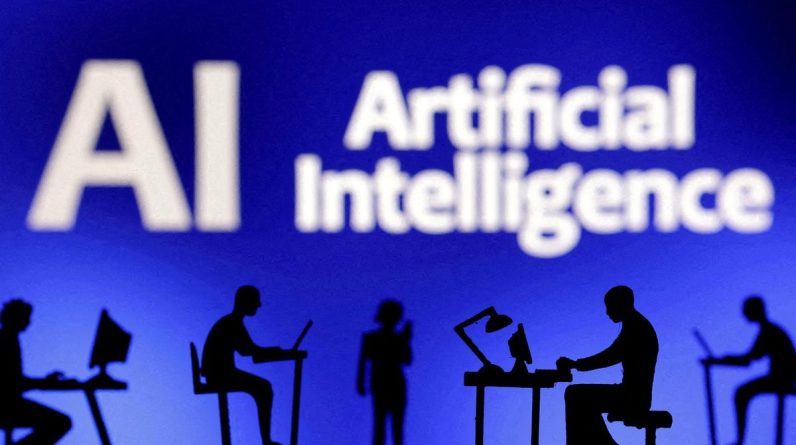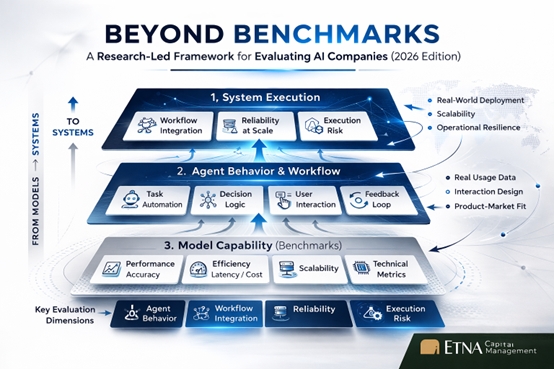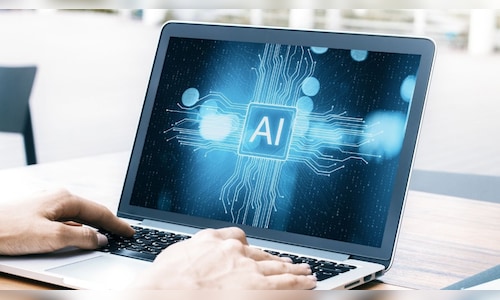
Metaâs AI layoffs and Salesforceâs contrasting hiring spree underline a growing corporate rethink: AI alone isnât delivering promised gains.
| Photo Credit:
Dado Ruvic
Meta recently announced that it is laying off approximately 600 people from its AI division, even as it pours billions into next-generation AI projects. Meanwhile, Salesforce CEO Marc Benioff recently declared that AI doesnât have a soul while announcing the companyâs plans to hire between 3,000 and 5,000 new salespeople.
Experts are now saying that while AI tools have boosted efficiency and saved employees hours each day, many organisations have yet to see proportional business gains. Firms that replaced too many human roles are now grappling with creativity gaps, weaker client relationships, and integration hurdles.
In this experimentation phase, not every AI-led transition is turning out to be a success; many organisations that rushed to automate are realising that productivity gains on paper donât always translate into real outcomes. Aditya Narayan Mishra, the MD and CEO of CIEL HR, explained that gaps in process design, insufficient employee readiness, and limited understanding of AI capabilities have led to inefficiencies.
Automation overreach hits real-world outcomes
While AI tools are saving employees up to 2 hours daily â up from 2024 â organisations have yet to realise significant value creation. According to Sunil Chemmankotil, Country Manager, Adecco India, the challenge lies in redirecting efficiency toward high-impact work.
âSome companies viewed AI purely as a means of cost efficiency, expecting immediate savings. They are now facing the unintended consequence of disrupted workflows, lower employee morale, and a loss of institutional knowledge. The reality is that AI transformation delivers sustainable benefits only when it is accompanied by reskilling, process redesign, and cultural adaptation, not just workforce reduction,â Mishra noted.
Another consequence of integrating AI into workflows has been miscellaneous costs for reskilling employees, managing data, and maintaining complex systems. Even if AI tools bring in efficiencies, the additional investments are setting them back in the near term.
Efficiency gains, but value still missing
Trust in AI remains lowest in emotionally nuanced areas like succession planning, career coaching, and exit conversations. Chemmankotil added, âEmployees consistently prefer human HR partners for empathy, contextual understanding, and transparent decision-making. Creativity and relationship-driven roles thrive only when AI augments, not replaces, human judgment. AI struggles with emotional intelligence, contextual understanding, and nuanced communication, leading to weaker client relationships and reduced personalisation.â
Automation bias and a lack of human oversight can also lead to errors, reduced empathy, and a decline in service quality, especially in complex or sensitive interactions. Excessive automation risks can make services feel impersonal and undifferentiated, impacting customer loyalty and brand perception.
Human touch proves irreplaceable
Neeti Sharma, CEO, TeamLease Digital, observed that while many companies have shifted to AI-led customer service & engagement, most customers still prefer speaking to a human for the final resolution of their complex problems, where human judgment is key.
âAn AI-only policy has not been very efficient for most companies. So, they are gravitating towards âhuman in the loopâ models where AI supports rather than replaces employees in the workflow. This approach will enable sustainable performance that comes from human intelligence,â she said.
Hybrid models take root
While there will be lower roles that perform routine, repetitive jobs, demand for humans who bring domain expertise along with AI skills is likely to grow. Forecasts suggest a 5â8% rebound in hiring for roles focused on creativity, relationship management, and complex problem-solving. Companies are also investing in reskilling to build hybrid professionals who can manage and humanise AI systems.
Future-ready talent has grown from 11% to 37%, with professionals actively upskilling and viewing AI as a job creator. Yet, Chemmankotil highlighted that only one-third can quantify their impact, underscoring the need for strategic upskilling and clear value pathways.
While AI-related layoffs may persist in some sectors, demand for human talent is rebounding, especially where machines fall short.
Published on October 24, 2025







